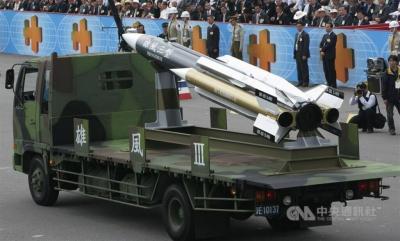Dementia centers, which have been closed since a nationwide level 3 COVID-19 alert began in May, might conditionally reopen soon, with specifics to be announced next week, the Ministry of Health and Welfare said yesterday.
While other care centers restarted operations last week, dementia centers were not included due to concern over their ability to adhere to pandemic guidelines, the ministry said.
More than 7,000 people with minor symptoms of dementia receive care at 508 public centers nationwide, which were established through the government’s Long-term Care Service Program 2.0.
The centers provide cognitive exercises, arrange group meals and help those they serve to participate in the community, among other services.
As they are in a variety of different facilities, such as medical institutions, community centers and churches, their sizes and contact with other groups varies widely, the ministry said.
This is different from other care centers, which are open on the condition that they serve a set number of people under strict conditions, such as having at least 6.6m2 of space per attendee, it said.
As people with dementia might be less able to follow COVID-19 protocols, dementia centers would only be reopened after carefully weighing the benefits against the risk of viral transmission, the ministry said.
Long-term Care Services Division Deputy Director Chou Tao-chun (周道君) told reporters that dementia centers must be evaluated separately from other types of care centers.
Dementia centers are often in shared spaces that are not big enough to maintain social distancing, Chou said, adding that this requires further discussion to determine intake eligibility, as the centers would not be able to serve as many people.
New operating guidelines for dementia centers are likely to be announced next week, after which they would be sent a checklist to evaluate standards such as vaccination coverage and available space, he said.
Local governments would be responsible for inspecting centers as they see fit, he said.
Asked whether the centers could meet standards of care set in the Long-Term Care Services Act (長期照顧服務法) given the restrictions, Chou said that local governments are encouraged to develop dementia centers into formal care centers, which could increase their capacity from 15 to 60 people per hour.

STATS: Taiwan’s average life expectancy of 80.77 years was lower than that of Japan, Singapore and South Korea, but higher than in China, Malaysia and Indonesia Taiwan’s average life expectancy last year increased to 80.77 years, but was still not back to its pre-COVID-19 pandemic peak of 81.32 years in 2020, the Ministry of the Interior said yesterday. The average life expectancy last year increased the 0.54 years from 2023, the ministry said in a statement. For men and women, the average life expectancy last year was 77.42 years and 84.30 years respectively, up 0.48 years and 0.56 years from the previous year. Taiwan’s average life expectancy peaked at 81.32 years in 2020, as the nation was relatively unaffected by the pandemic that year. The metric

Taiwan High Speed Rail Corp. (THSRC) plans to ease strained capacity during peak hours by introducing new fare rules restricting passengers traveling without reserved seats in 2026, company Chairman Shih Che (史哲) said Wednesday. THSRC needs to tackle its capacity issue because there have been several occasions where passengers holding tickets with reserved seats did not make it onto their train in stations packed with individuals traveling without a reserved seat, Shih told reporters in a joint interview in Taipei. Non-reserved seats allow travelers maximum flexibility, but it has led to issues relating to quality of service and safety concerns, especially during

A magnitude 5.1 earthquake struck Chiayi County at 4:37pm today, the Central Weather Administration (CWA) said. The hypocenter was 36.3km southeast of Chiayi County Hall at a depth of 10.4km, CWA data showed. There were no immediate reports of damage resulting from the quake. The intensity of the quake, which gauges the actual effect of a seismic event, measured 4 in Chiayi County, Tainan and Kaohsiung on Taiwan's seven-tier intensity scale, the data showed. The quake had an intensity of 3 in Chiayi City and Yunlin County, while it was measured as 2 in Pingtung, Taitung, Hualien, Changhua, Nantou and Penghu counties, the data

The Supreme Court today rejected an appeal filed by former Air Force officer Shih Chun-cheng (史濬程), convicted of Chinese Communist Party (CCP) espionage, finalizing his sentence at two years and two months for contravening the National Security Act (國家安全法). His other ruling, a ten-month sentence for an additional contravention, was meanwhile overturned and sent to the Taichung branch of the High Court for retrial, the Supreme Court said today. Prosecutors have been notified as Shih is considered a flight risk. Shih was recruited by Chinese Communist Party (CCP) intelligence officials after his retirement in 2008 and appointed as a supervisor